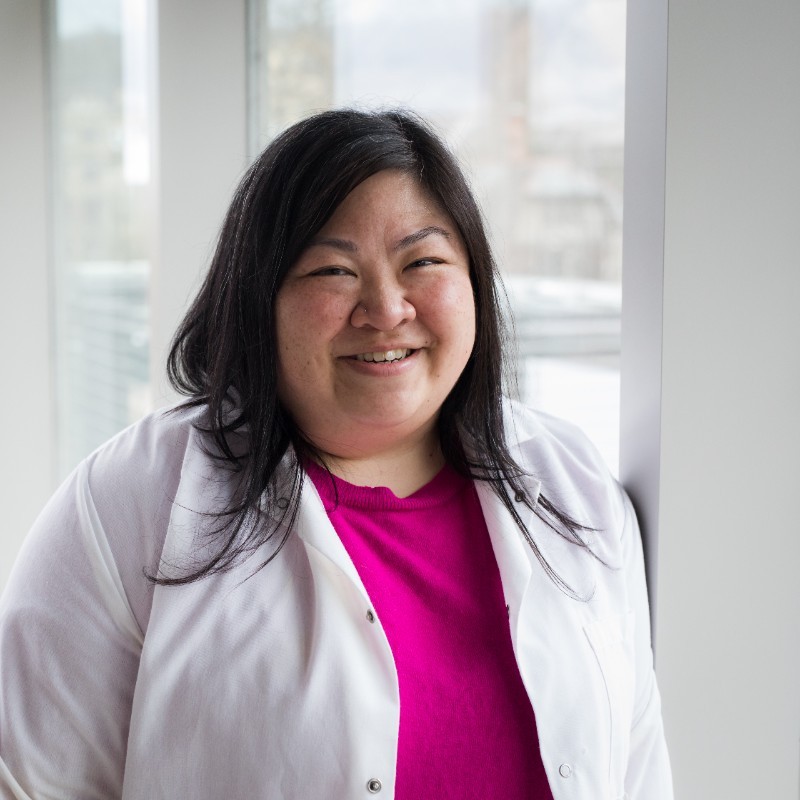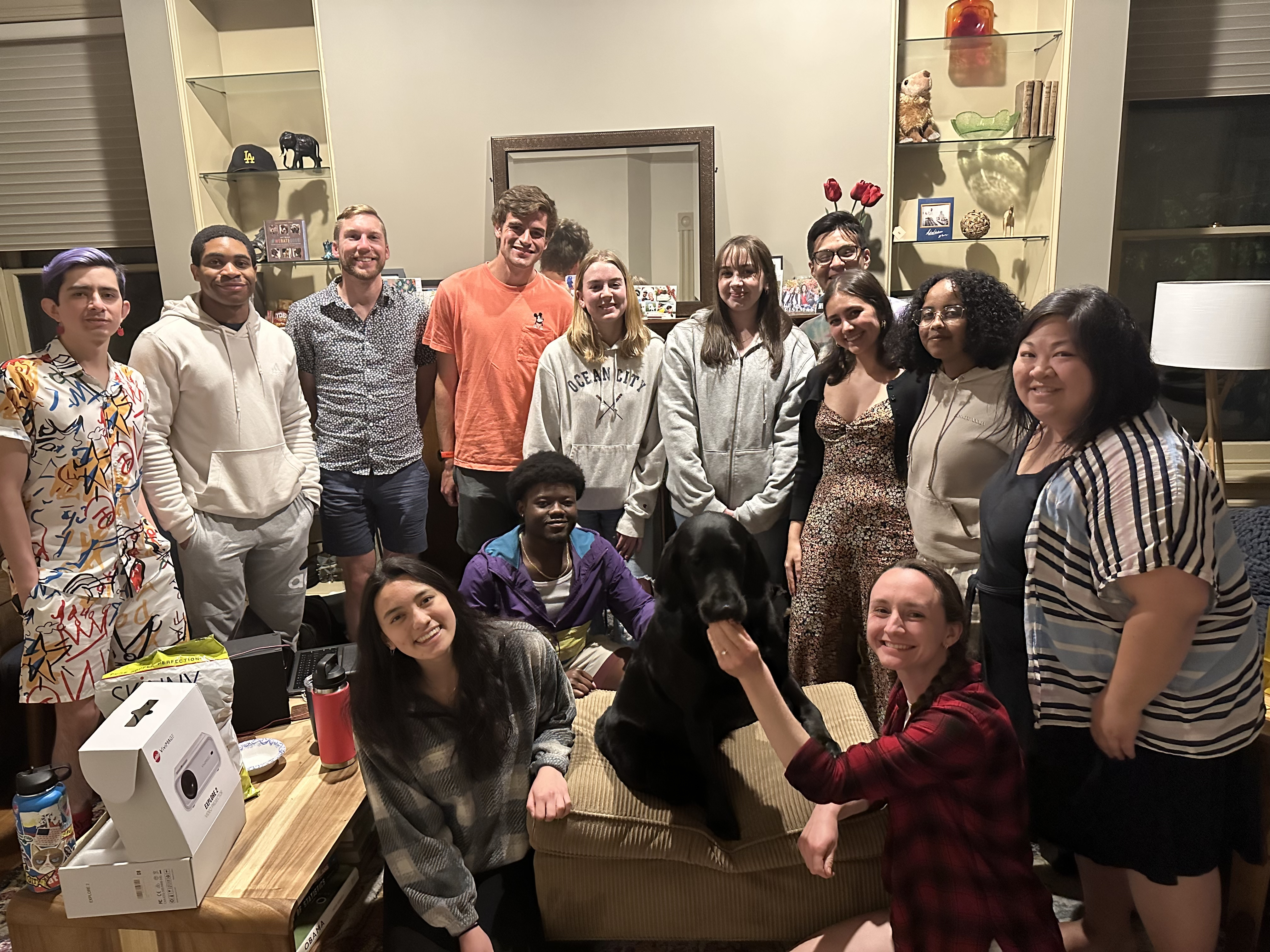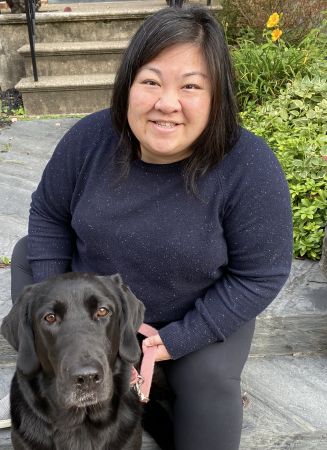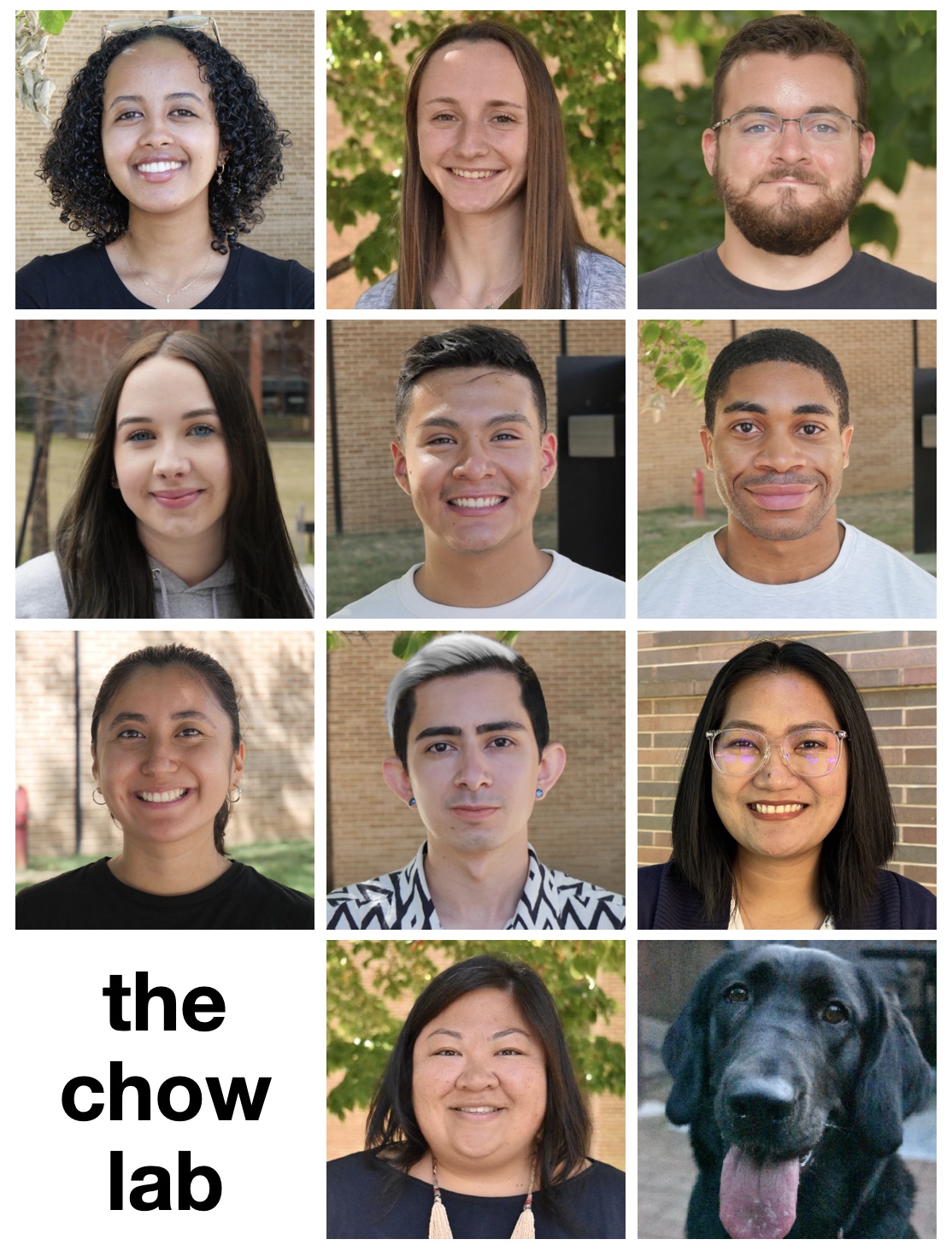BioE Faculty Spotlight: Lesley Chow
Where are you from, where do you call your hometown?
My hometown is Orlando, FL, USA. I spent my early childhood (elementary and middle school) in Lexington, KY, USA.
Can you walk us through your educational and work experience/background? What is your story?
I majored in Materials Science and Engineering (MSE) with a focus in polymers at the University of Florida. I originally wanted to be a doctor, but I did a summer research experience at the University of Central Florida during undergrad that showed me how materials research could be applied to biomedical research and impact human health more broadly. I joined a research lab focused on biomineralization at UF and realized I loved biomaterials. I continued in MSE at Northwestern University for my PhD focused on supramolecular biomaterials to enhance blood vessel formation and organ/tissue transplant engraftment. I completed my postdoctoral training at Imperial College London in Materials and Bioengineering developing techniques to spatially functionalize electrospun polymer-based scaffolds.
What is an early memory you have of actively choosing STEM/science/engineering?
My mom was a nurse and my dad was a mechanical engineering professor so my guess is that STEM was imprinted on me while still in the womb…
How did you come to end up at Lehigh University? What is your favorite thing about the institution?
I was impressed with the research and collegiality among faculty in Bioengineering and Materials Science and Engineering at Lehigh. The size of our institution and how it also enables us to meet people across the entire university rather than only in our department/college. My favorite part is seeing students from my group/classes/organizations I am part of around campus!
What are some goals/bucket list items that you hope to achieve someday?
I would love to see one of our biomaterials technologies make it into the clinic one day! Ideally, the technology would be a low-cost, shelf-stable biomaterial product with global impact that supports health equity, especially for marginalized communities with lower resources.
Specific to BIOE (I know you are in Material science as well), what do you like about bioengineering? What has been a favorite memory being in the department?
I am *just* old enough that majoring in bioengineering or biomedical engineering wasn’t a widespread option. I like how the bioengineering discipline has evolved since I was an undergraduate student, and I appreciate how our department adapts in response to emerging technologies like artificial intelligence. My favorite memory in the department has been the parties at Prof. Susan Perry’s house welcoming new graduate students and celebrating our graduating seniors!
Tell us more about The Chow Lab. What type of work/research do you do? Are you currently looking for more students to join your team?
Our lab focuses on designing, synthesizing, and fabricating biomaterials that direct functional tissue formation and regeneration. We know that the spatial organization found in native tissues is tightly linked to their function, so we want our biomaterials to guide cells to produce new tissues with native-like organization. To achieve this, we have developed a versatile platform that combines modular molecular building blocks and fabrication techniques to independently control biochemical, physical, and mechanical cues within a single biomaterial. This platform enables us to fine-tune cell-material interactions to optimize biomaterial design. In addition, we consider the true impact of how our biomaterials are manufactured and how accessible our technology is for a global population.
We are currently recruiting one or two undergraduate students to join our team and are always open to discussing potential opportunities for talented graduate students and postdoctoral scholars!
What has it been like being a woman in STEM? What words of wisdom or advice would you give our students who are in the same situation?
I will always remember a math teacher in middle school making a comment comparing me to my older brother, implying I would be weak in math. This interaction could have gone a very different way– I could have been discouraged and/or believe the false narrative that boys are better at math and science. Luckily, I am very fortunate to have a super supportive family (including my very smart older brother!) who helped me recognize that this math teacher was perpetuating a myth that has led to a significant gender disparity in STEM.
As a woman in STEM, I still see bias persist in how women are treated differently at all levels. My advice to those who identify as women is to find your “squad” who support you and lift you up and do whatever you can to make things easier and more inclusive for the next generation of women and people from underrepresented or marginalized groups.
Any last things to share?
My research team shares a lab ethos on our website that emphasizes that racial justice and support for marginalized communities must be fully integrated into our research. We actively learn about topics related to diversity, equity, and inclusion in STEM to expand our education and identify specific ways we can be advocates and changemakers within our spheres of influence. We also encourage everyone to bring their whole selves to the lab. This culture includes a shared love for animals and plants that have become our lab mascots! For example, my dog Rosa is prominently featured on our website and social media account, and we have a lab plant named Percival.
Thank you to Professor Chow for taking the time to answer our questions! If you have questions for Professor Chow about any of her answers above, please contact her here: lac415@lehigh.edu.




